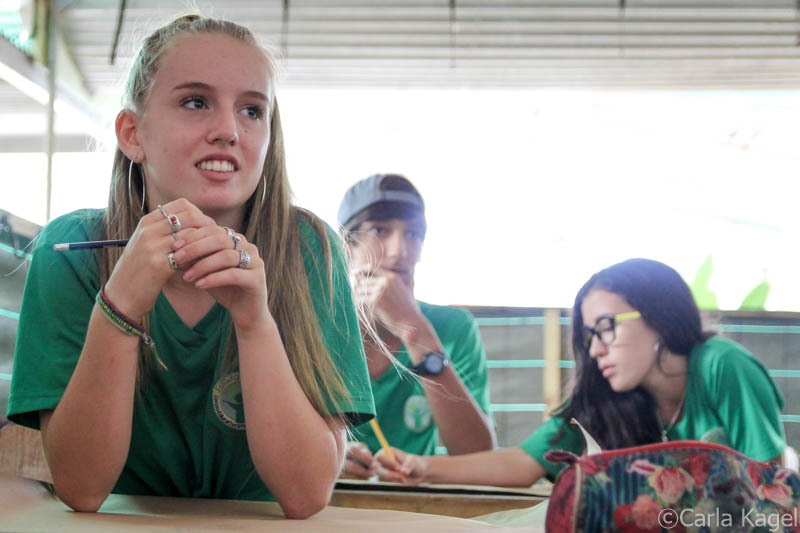
by Stuart Millar, IB coordinator | Jun 20, 2019

The world we live in is always changing. With globalization and constant innovation, the children of today will have opportunities and face challenges that we don’t even know about yet. The International Baccalaureate Organization reviews each curriculum it offers “… on a seven-year teaching cycle to ensure that each is fit for purpose in a changing world and incorporates the latest educational research and lessons learned from a thorough evaluation of the existing curriculum.” (Latest Curriculum Updates, IBO.org)
Futuro Verde students currently in 10th grade and below will embark on newly developed courses in: Spanish Literature, English Language & Literature, English B, Spanish B, and Math. These changes affect: what is studied, how it’s studied, and how students are assessed.
During recent years the IB diploma program has been changing to a more conceptual approach to the subjects that are taught. Starting in 2020, English Language & Literature will be focused on the concepts of: culture, identity, creativity, communication, perspective, transformation, and representation. Other changes include the use of learner portfolios which students will create as they investigate connections between texts on a global issue of their choice. The Spanish literature course will be formed around the same seven concepts, while also covering three “areas of exploration”: readers, writers, texts; time and space; and intertextuality. Changes in language acquisition include the addition of a listening comprehension assessment, and new themes to explore: identities, experiences, human ingenuity, social organization, and sharing the planet.
Math has also undergone a seven-year review, with the result being a number of new math courses for schools to select from. We are still reviewing the options to determine the best fit for our students, but the emphasis will now be more on critical thinking in a mathematical context. All new math programs will focus on developing skills of analysis, abstraction and generalization, risk awareness and statistical literacy, algorithmic thinking, modeling and inquiry.
Change can be difficult, but also rejuvenating. It is encouraging to see IB continually working to keep up with the pace of change in our world, in order to equip our students with the knowledge and skills that modern employers are looking for. During the remainder of this year all teachers will be familiarizing themselves with course changes, and updating their curriculum and methods of assessment to prepare students to be as successful as possible in the years to come.
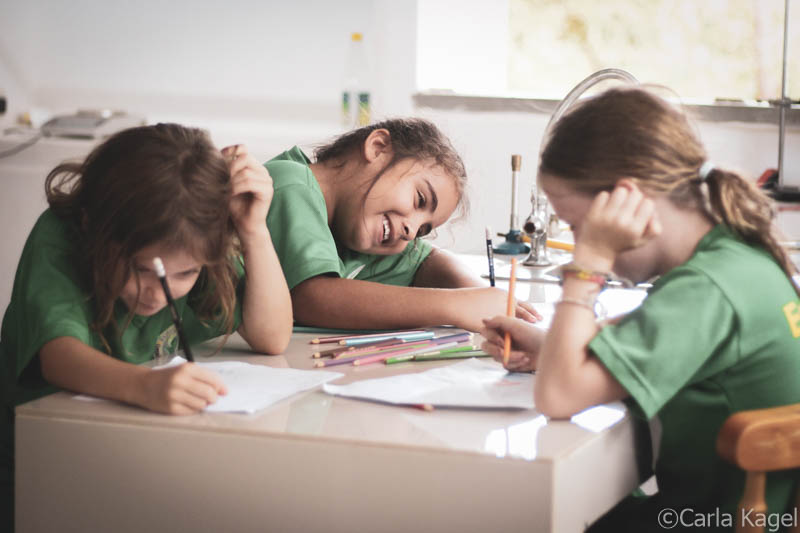
by Noelia | Jun 18, 2019

Reminding you of important dates of enrollment for the 2020 school year:
For all current FV families we have a pre-registration and discount period from June 14 to August 15, 2019.
Starting August 16, 2019, enrollment priority comes to an end, which means that regular enrollment is open for everyone wishing to enroll for the 2020 school year and the regular and non-discounted enrollment price for the 2020 school year applies for both current and new FV families.
The enrollment discount applies only to families that are currently enrolled at Futuro Verde.
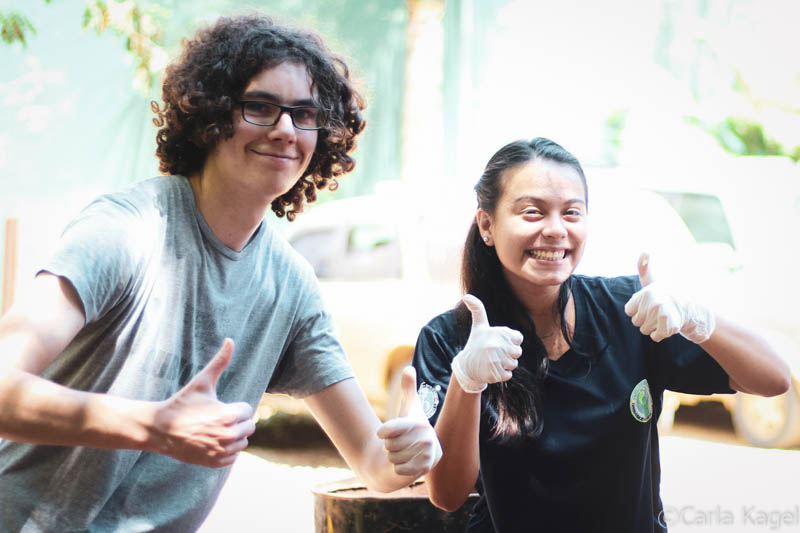
by Katie Chiaverini | Jun 16, 2019

Why send your child to camp? The benefits for your child will last much beyond the camp itself. The Model United Nations Institute highlights the many camp benefits which increase social skills and improve overall mental and physical health. A few of the most prominent include: learning from positive role models, the development of self-reliance and independence, and making new friends with people from different backgrounds. The Century Foundation also reports that “students’ exposure to other students who are different from themselves and the novel ideas and challenges that such exposure brings leads to improved cognitive skills, including critical thinking and problem solving.”
Another important aspect of academic summer camps is the preparation they provide for college and career life. MUN Institute reiterates that college admissions are growing more and more competitive and this then continues into the job search. Camps help students gain new skills that universities and employers are looking for, including communication abilities, critical thinking skills and motivation to focus on specific subject areas (Walsh, 2018). In our Futuro Verde College Counseling course, we specifically work on identifying hard (quantifiable) and soft (personal) skills, developing and strengthening them throughout the high school years.
Many of our very own Futuro Verde students have had the opportunity to attend camps or will be doing so in the future. Two of our students have recently returned from a music camp in Southern United States. When asked about the highlights of their experience…the first thing both students mentioned was the opportunity to meet new people from different cultures. They also both recognized the challenge of staying with a home-stay family but how it was a positive experience that made them grow as individuals. For one student, she found it a bit of a struggle to speak English the entire time, but was appreciative of having to go out of her comfort zone to communicate with her host family and other camp members. She also loved the Master’s class as she improved her technical skills in music. Traveling all on their own and the preparation for travel was a new experience and help them plan ahead and be responsible for many small details, whether it is from deciding which clothes to bring to finding city attractions to visit.
Two students who regularly attend a wilderness camp in the Northwest of the United States commented that their favorite memories include kitchen food raids with their counselor late at night, learning how to play ga-ga ball, and meeting new people who they hang out with for an entire week thus getting to know them better. They remember the skills and new games they learn and even find themselves singing camp songs upon their return home.
Several other students have had the opportunity to attend a local camp in San Jose which was service oriented. One student excitedly remarked about her favorite memory which was volunteering at a local non-profit organization because it was a fun experience and she enjoyed getting to help others. Another student who went to the same camp appreciated learning leadership skills, working as a team, and the fun activities they got to do with diverse groups of people.
All of the students who participated in camps reflected on the fact that going off to camp on their own brings about a lot of nervousness and excitement but that it is an exhilarating feeling traveling on their own and increases their independence. A father of children who attend camp regularly agrees with the independence piece – he believes it is an important life skill, working through homesickness at a young age, dealing with the ups and downs of camp life and being resilient enough to enjoy the overall experience. In short, camp can be an enlightening experience for both students and parents, teaching life skills that can endure a lifetime.
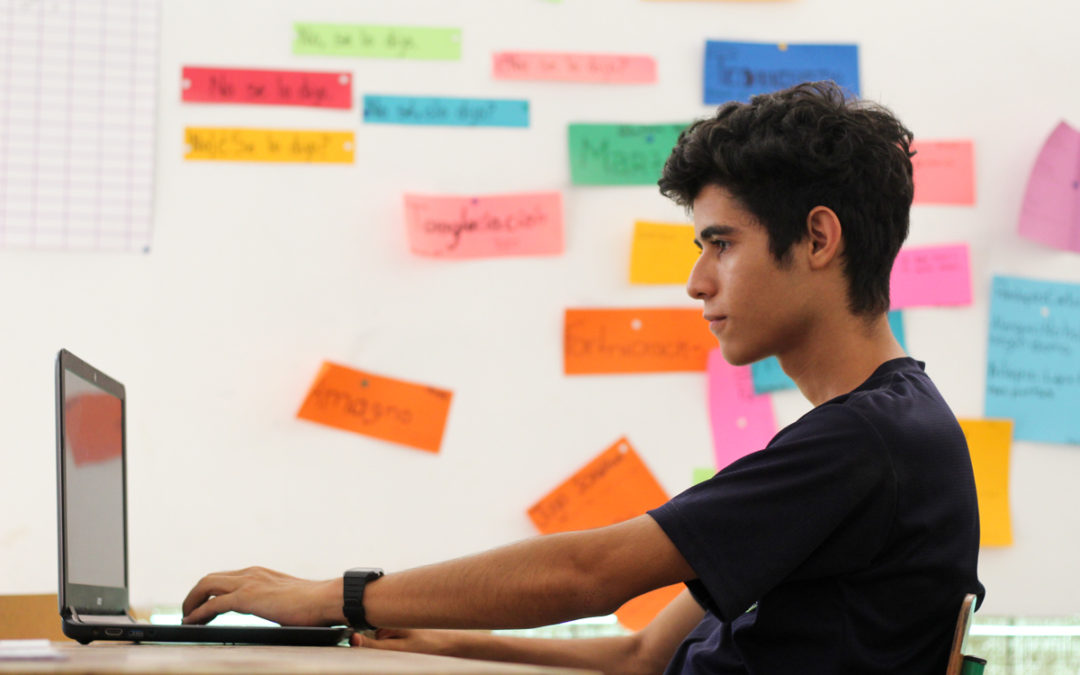
by Stuart Millar, IB coordinator | May 31, 2019
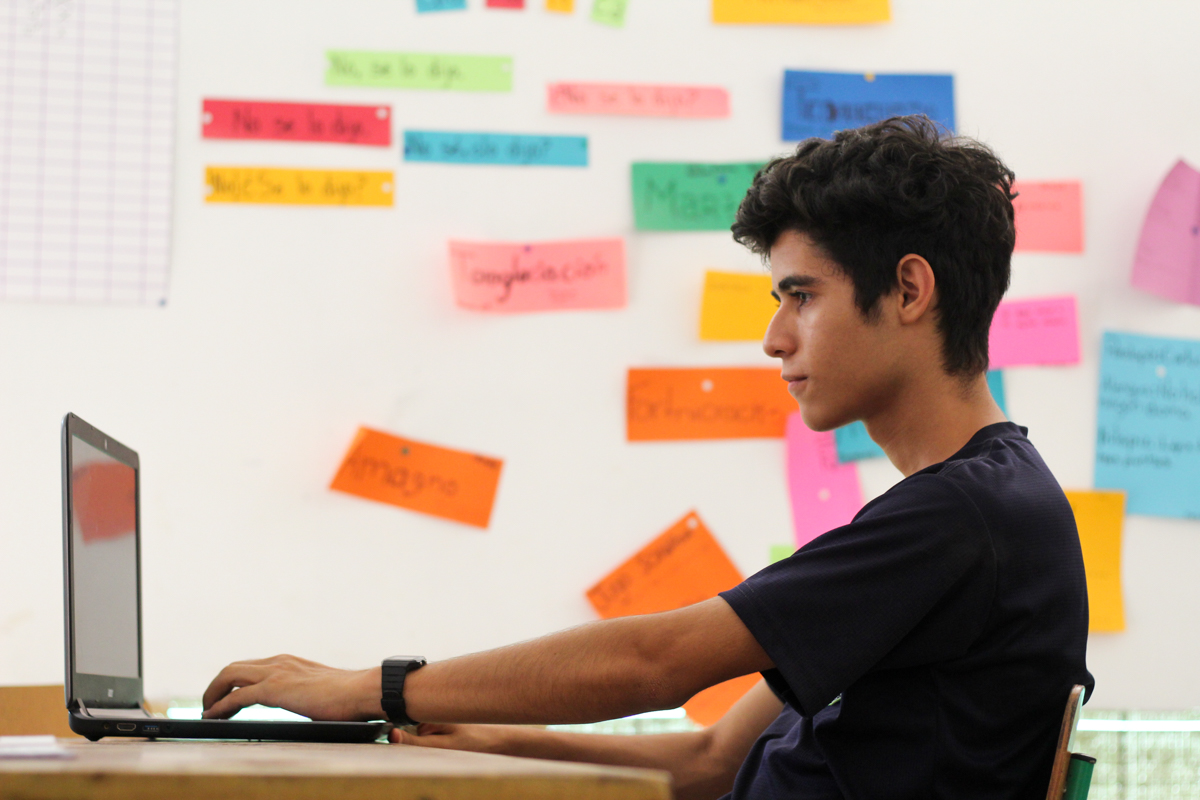
(By Stuart Millar and Karol Madrigal)
November 2019 is a month that the 11th and 12th graders are focused on, with exams on the horizon. Our first IB students will take their final exams over a three week period, while 11th grade students will take their final MEP exams in social studies and civics during the first week of November.
However, some might not be aware that a large percentage of a student’s final grade will already have been decided by then. In social studies and civics, 40% of the final grade comes from the classwork, homework and projects that the students have completed since the beginning of 10th grade. Essays, research projects, oral language assessments, visual art exhibitions, and recorded musical performances mean that our IB students will have completed more than half of their assessments by the time the exams come.
What does all this mean if you are a student in 10th, 11th or 12th grade? First, it means everything counts! So, work hard on every piece of classwork, homework, and every project so you can walk into the exam knowing that you have a solid base. If you’re not the most confident in exam taking techniques, then you can feel better about the fact that the exams are not all or nothing. However, in that case it is especially important that you take the exams with some good points already under your belt. For those who excel in exam situations, don’t rely on that to help you achieve a high final grade if you haven’t invested the necessary time and attention in all the other assessments.
It might be a cliché, but the two years leading up to MEP or IB exams are marathons, not sprints. It is vitally important that students give their best effort every day and chip away at all the work they have to do in the years leading up to the final exams. Teachers and parents should remember that every class and every piece of work plays a role in whether a student is as successful as they can be, or not. This is why life skills like organization, time management, attendance, and punctuality are important for all of us.
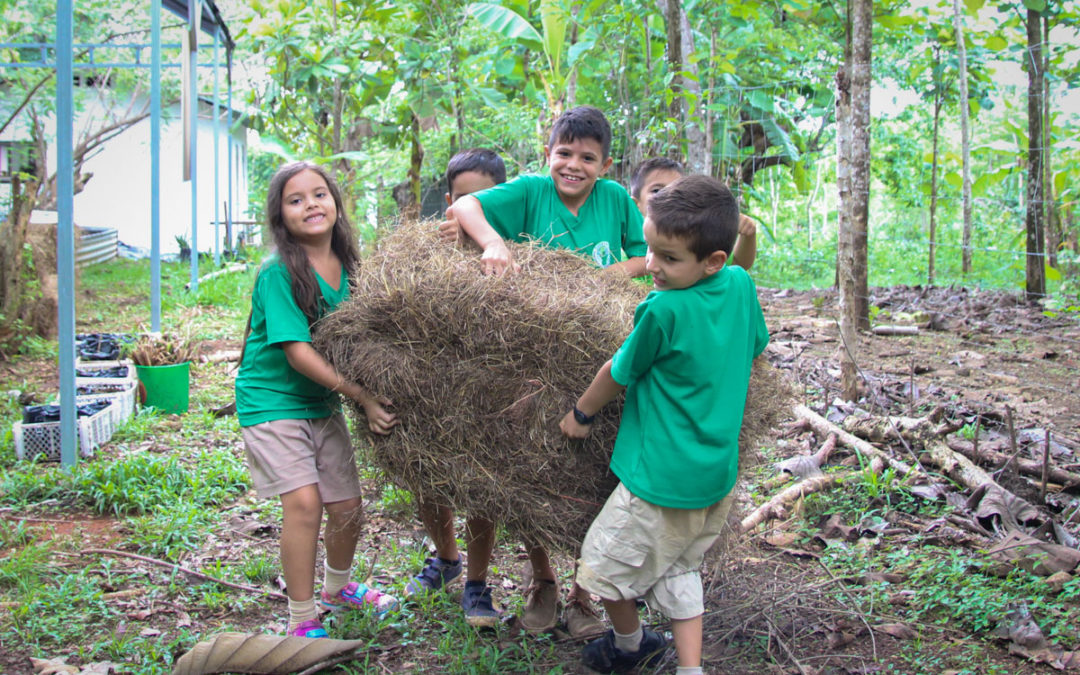
by Katie Chiaverini | May 30, 2019
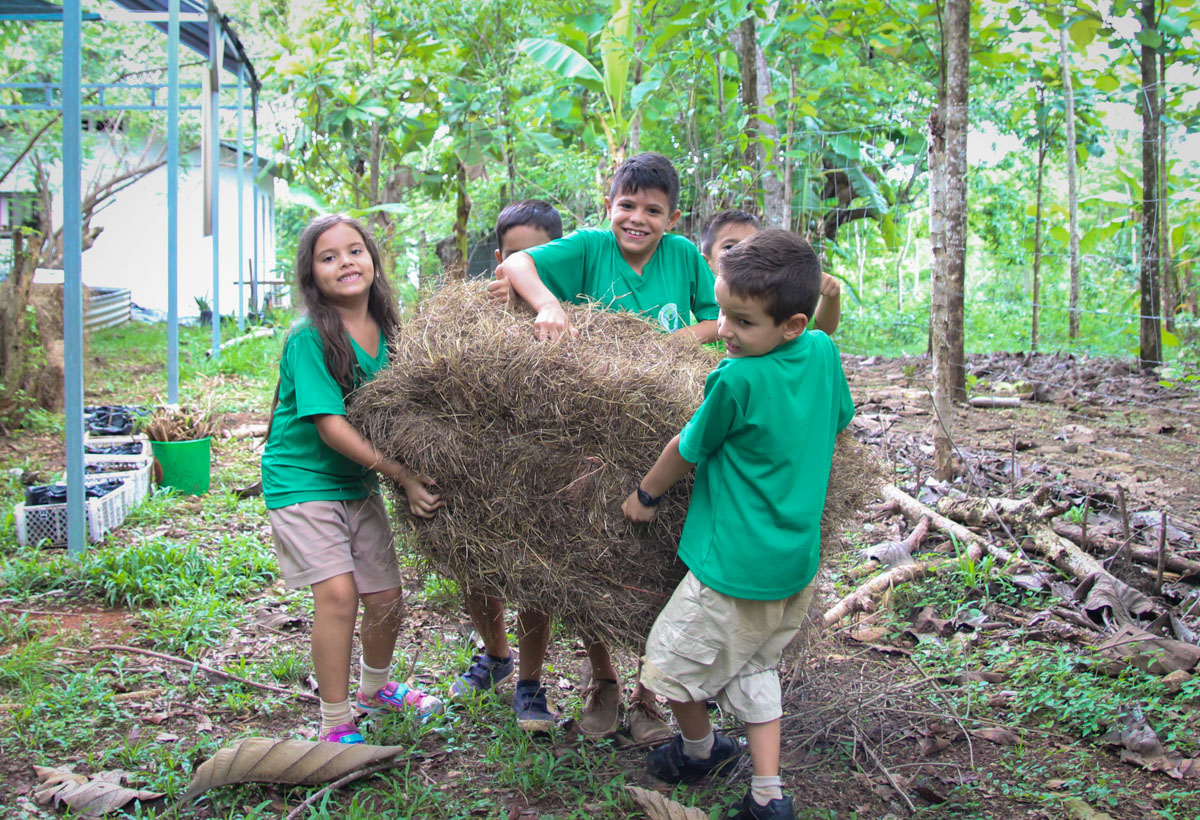
Take a walk around our school to see all the different projects in different phases of implementation. You might just happen to encounter Adriana, our Permaculture Specialist sponsored by Green Wave, giving a hands-on workshop to one of the grade level classes during environmental education class.
Each grade level at Futuro Verde has a different environmental focus related to sustainability and permaculture. The science teacher, environmental education teacher, and our Permaculture Specialist collaborate in hands-on workshops where students learn how to implement a specific permaculture technique to then be followed up with regular visits and attention in weekly environmental education and science activities.
All of the grade levels work in collaboration to support the greater effort to become a more sustainable school. Some of the most recent workshops have been very exciting and in perfect timing with the upcoming green season, which is ideal for planting. 3rd grade has now added two more lasagna compost piles to create a 3 pile system to later be used as compost in the garden beds. 7th grade has started adding to our school seed bank after investigating different techniques for storing seeds and has begun creating a seed database.
The follow up to seed saving comes with 4th and 5th grade projects to prepare the soil and also filling pots and trays while they practice different propagation techniques for a diverse plant population. 2nd grade then followed through the process by sowing seeds in trays and then planting them in the garden beds, following the moon cycle for best yielding. As they planted seeds, they also increased their organization skills by labeling each plants they sowed and by creating a watering schedule.
The 6th grade permaculture project to introduce the creation and use of different fermented natural foliar sprays is easily applicable by the creation of sprays then put into practice to help control pests and promote growth in the school garden areas.
Several grade levels are working together to help keep our chickens feeling content and comfortable in their surroundings. We are currently hoping to better secure the chicken coop area fence as we also look for creative ways to keep them fed over the breaks. Last week several grade levels worked together to plant banana trees which will provide food for the chickens over the mid-year break. As a school, we are always looking for sustainable solutions to implement on a daily basis, starting with something as simple as asking ourselves, “how can we keep our chickens fed and happy over school vacations?”
All of these workshops and ongoing projects have just taken flight in the last few months and there are more to come. Next up, Futuro Students will be visiting the Cabo Blanco Reserve to look at Food Forests and how to imitate them at our own level within the current curriculum and institution.
As our school continues to grow in numbers, we continue to look for sustainable solutions to help us grow responsibly. Permaculture is one of our solutions and we are so thankful that we have the support of the local community to implement permaculture practices in our school.
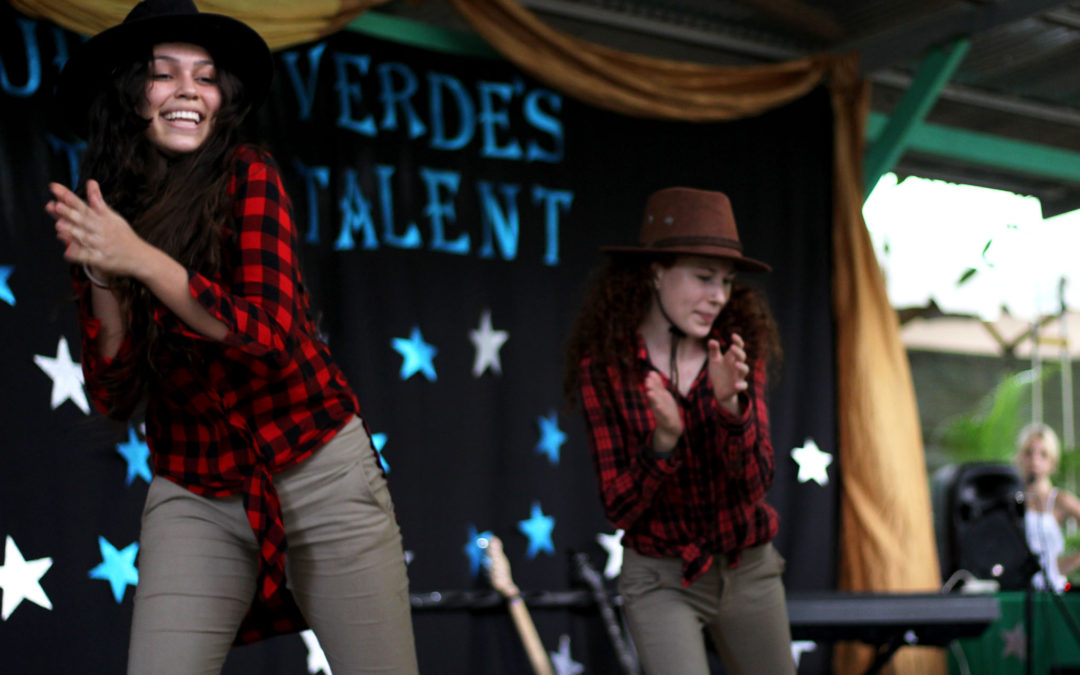
by Khalida Lockheed | May 25, 2019

This year we anxiously await the third edition of Futuro Verde’s Got Talent, a week-long arts festival culminating on June 14th! The Talent Week, from June 10-14, begins with Literary and Visual Arts displays in the library and music room with submissions from students from preschool to graduating seniors. This is an opportunity for the entire Futuro Verde community to come together and take the time to enjoy and share the creativity of our talented student body. On Friday of Talent Week, our students will perform their talents at the Futuro Verde’s Got Talent Show, an all day event! We welcome the whole Futuro Verde community to join us for this fun, and sometimes surprising, show!










